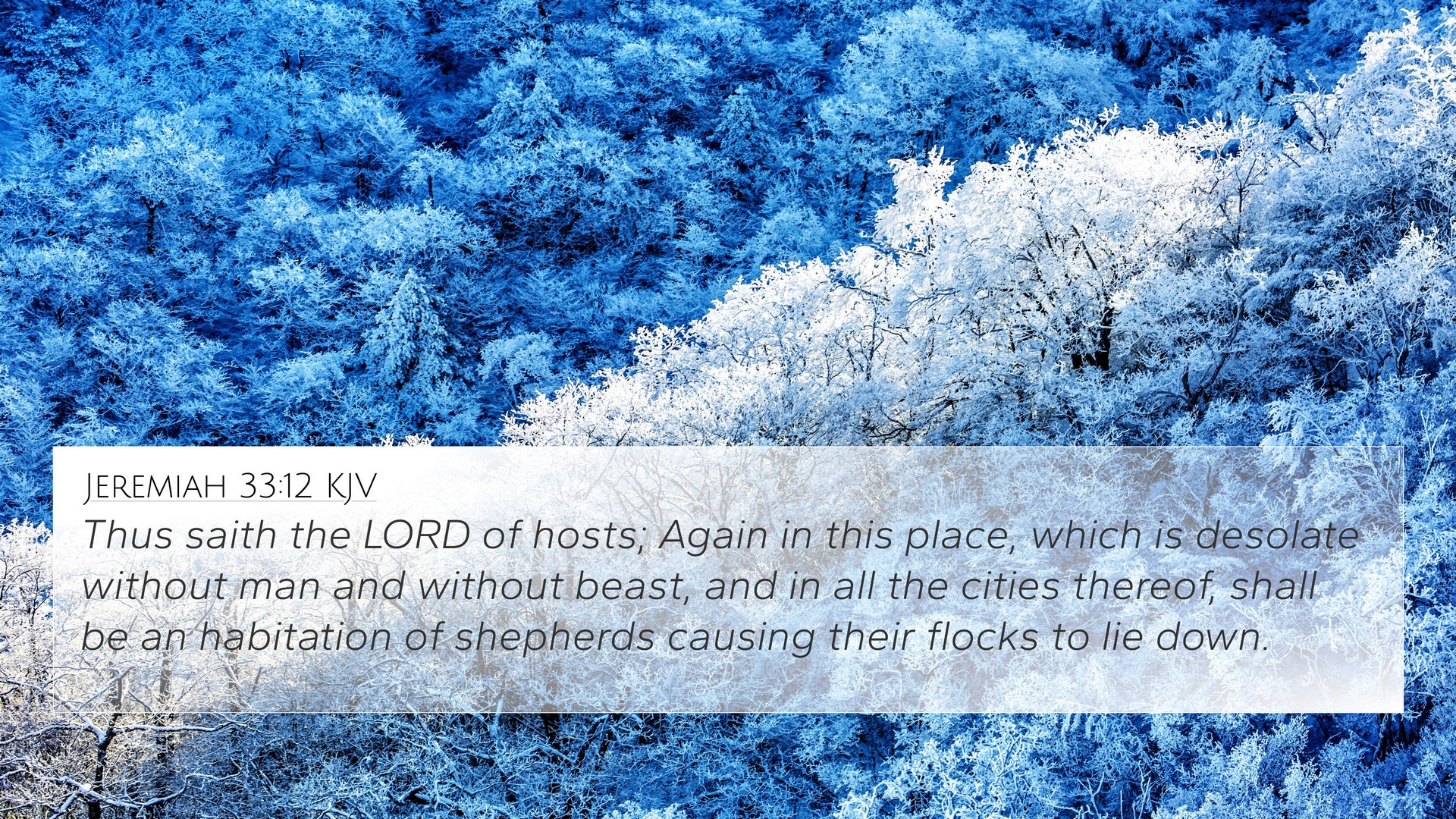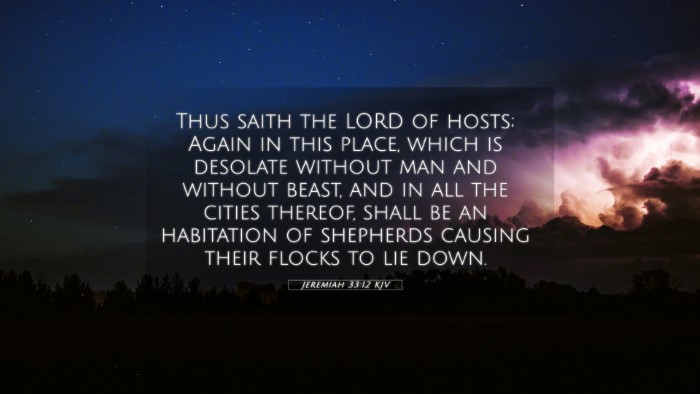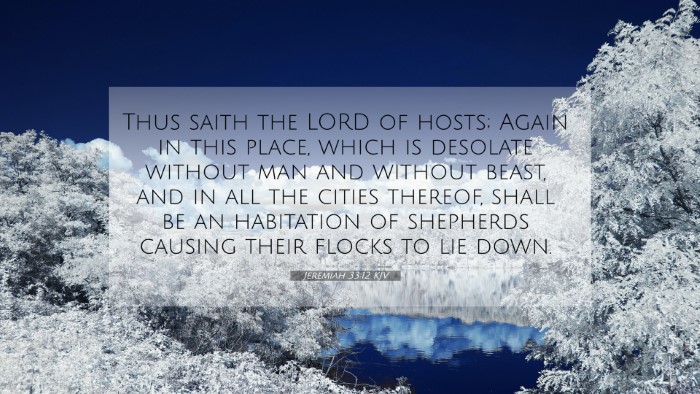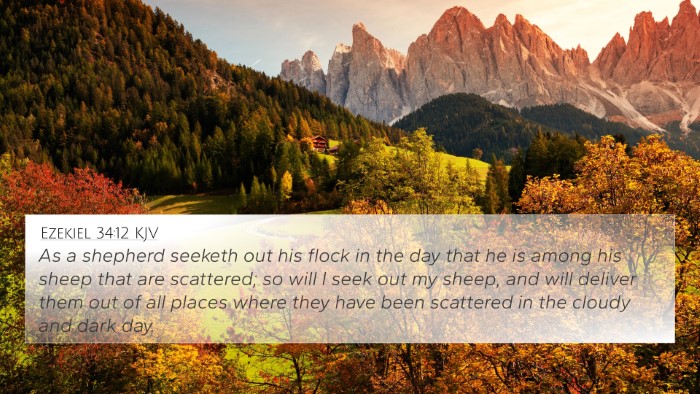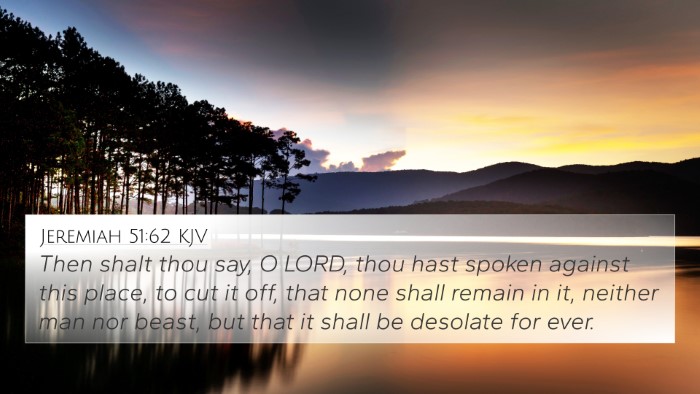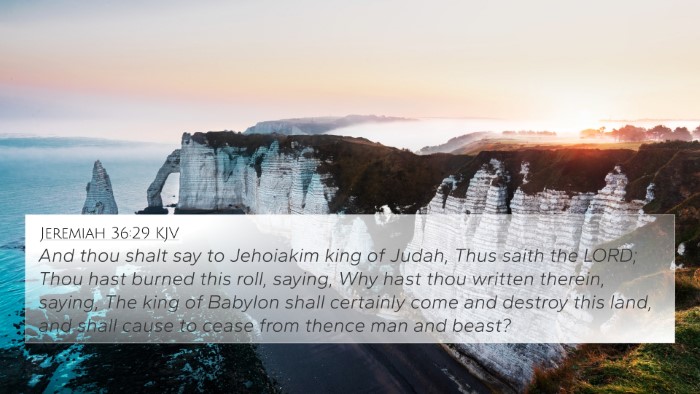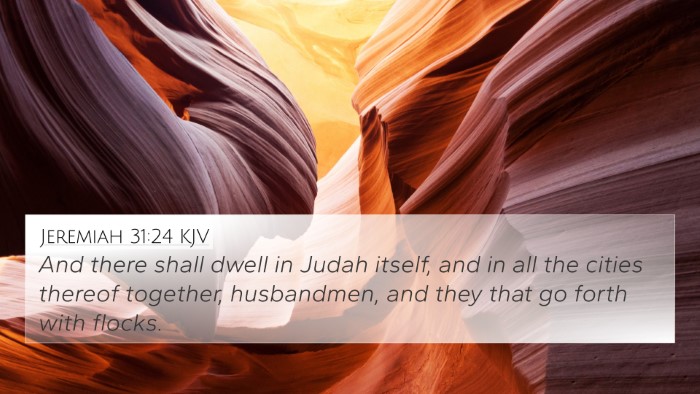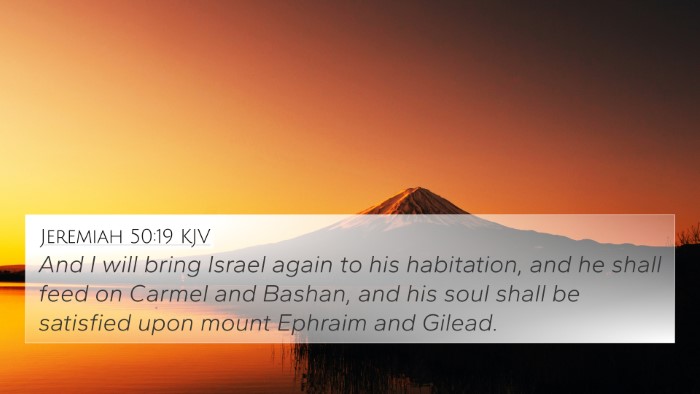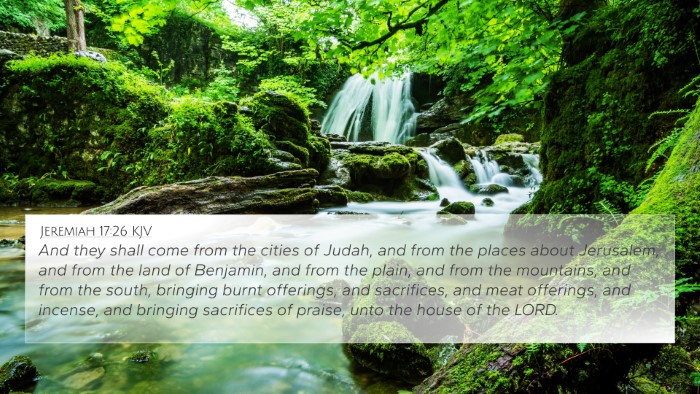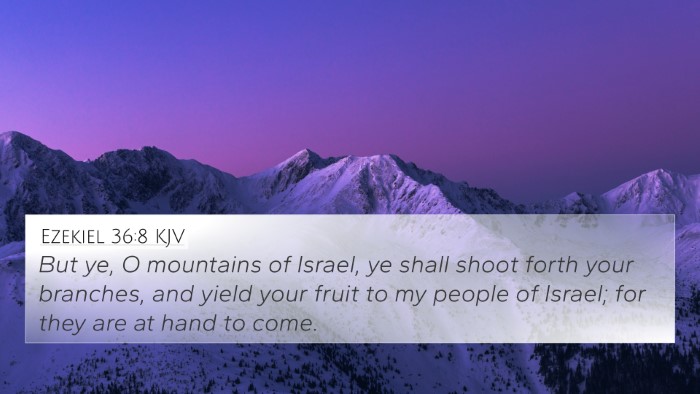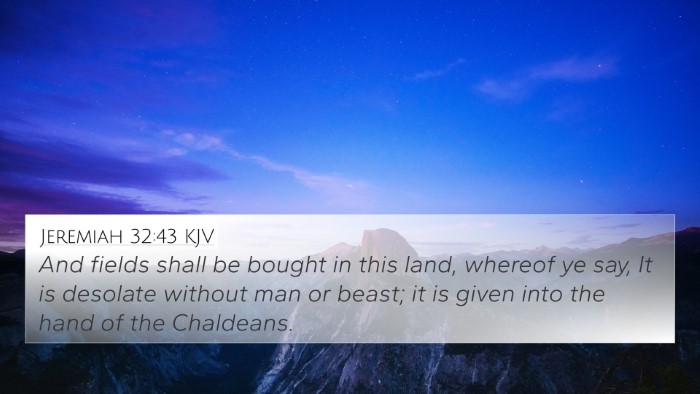Understanding Jeremiah 33:12
Jeremiah 33:12 states, "Thus saith the Lord of hosts; Again in this place, which is desolate, without man and without beast, and in all the cities thereof, shall be an habitation of shepherds causing their flocks to lie down."
This verse carries profound implications regarding restoration, hope, and God's enduring promises to His people. Commentary insights shed light on the historical and spiritual dimensions of this scripture.
Historical Context
According to Matthew Henry, Jeremiah's ministry was during a time of great turmoil for Israel, as the people faced impending destruction from Babylon. The desolation mentioned refers to the destruction that was imminent, yet this verse illustrates that God has a plan for rejuvenation and restoration.
Restoration Promised
As outlined by Albert Barnes, the phrase "thus saith the Lord" emphasizes divine assurance amidst chaos. It signifies God's active intervention, promising a return to prosperity where shepherds will safely lead their flocks. This imagery encapsulates care and safety, suggesting that desolation will one day flourish anew.
The Role of Shepherds
Adam Clarke elaborates on the symbolism of shepherds. In biblical terms, shepherds represent leaders and caretakers. The vision of "shepherds causing their flocks to lie down" highlights a return to a peaceful existence under responsible guidance. This denotes a shift from desolation to restoration under God's leadership.
Key Themes in Jeremiah 33:12
- Divine Promise: The Lord’s promise for restoration is central to this verse.
- Hope in Despair: The verse offers hope during dire circumstances.
- Leadership: The shepherds represent God's faithful leaders.
- Restoration:** Implies a transformation from desolation to a vibrant community.
Bible Verse Cross-References
Jeremiah 33:12 connects to several other scriptures, enhancing our understanding of its themes:
- Isaiah 40:11: "He will feed his flock like a shepherd: he will gather the lambs with his arm." This verse parallels the theme of God as a caring shepherd.
- Ezekiel 34:14: "I will feed them in a good pasture, and upon the high mountains of Israel shall their fold be." This correlates with the restoration imagery found in Jeremiah 33:12.
- John 10:11: Jesus describes Himself as the Good Shepherd, establishing a direct link to the shepherd metaphor in Jeremiah.
- Psalm 23:2: "He maketh me to lie down in green pastures: he leadeth me beside the still waters." This reiterates themes of peace and provision.
- Matthew 9:36: "But when he saw the multitudes, he was moved with compassion on them, because they fainted, and were scattered abroad, as sheep having no shepherd." This connects to the notion of caring for the flock.
- Hebrews 13:20: "Now the God of peace, that brought again from the dead our Lord Jesus, that great shepherd of the sheep..." Reinforcing the concept of Jesus as a shepherd.
- 1 Peter 5:4: "And when the chief Shepherd shall appear, ye shall receive a crown of glory that fadeth not away." Supporting the biblical motif of the shepherd.
Thematic Connections
The connections between Bible verses can deepen our understanding of key biblical themes. Here’s how Jeremiah 33:12 fits into larger scriptural narratives:
- Thematic Bible verse connections: The recurring theme of God as a shepherd expands across both the Old and New Testament, displaying His concern for His people.
- Inter-Biblical dialogue: Comparing Old Testament prophecies with New Testament fulfillments illuminates God’s unified plan for redemption.
- Bible verse parallels: Identifying parallels between scriptures fosters a deeper appreciation of God’s promises and the continuity of His Word.
Studying Cross-References
For those interested in exploring theological concepts through cross-referencing, here are some helpful tools and methodologies:
- Bible cross-reference guide: Utilize comprehensive guides for thematic studies.
- Bible concordance: Aids in locating where themes and key words are mentioned throughout the scriptures.
- Cross-referencing Bible study methods: Incorporating multiple scriptures into studies to enhance theological insights.
Conclusion
Jeremiah 33:12 offers a beautiful affirmation of God's promise to restore and lead His people. Through the imagery of shepherds and the promise of rejuvenation, this verse encourages believers about God's faithful guidance amid desolation. By utilizing techniques for cross-referencing and exploring related scripture, one can gain a fuller understanding of God's Word and His unwavering commitment to His creation.
